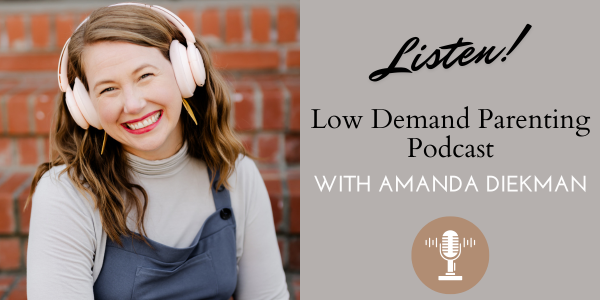7 Things I Didn't Know Until My Child Went Through Burnout
Feb 06, 2024
Originally published Apr. 25th, 2024. Written by Amanda Diekman
#1: Burnout for kids is "a thing."
High powered executives experience burnout. Young children? I didn't know. I didn't know that autistic burnout often comes with a loss of previously acquired skills and can have a permanent impact on the autistic person. I learned that when a child refuses to leave the house, when they go into extreme fight or flight just sitting in the car, when they aggressively meltdown many times per day, when they reduce food intake dramatically, cease speaking, this is called burnout.
#2: The first burnout often happens at age 6.
From talking with an expert in autistic burnout, I learned that the first burnout often happens at age 6. I am sure that there are many complex reasons for this, but it cannot be a coincidence that this is also when we send children away from their parents into extended days in a schooling environment filled with challenges and demands. If the system isn't built for you, and you are expected to spend the majority of your waking hours in that system, is it any surprise that it leads to burnout?
#3: I can be ok with my child watching 12 hours of YouTube.
For my child, the only safe space was YouTube. We could not connect with him. He could not find any safe space out in the world. So he found his own safe space: Watching a British man build RC cars in his garage, watching teenagers prank each other in Minecraft, watching the same video over and over and over. In the Before, I could only see 12 hours of YouTube as a failure. Walking with him through this hard season, I learned to see the incredible gift of technology to connect when I couldn't.
#4: I don't need to be a "good parent." I want to be the parent this child needs.
All the definitions of "good parenthood" that I used to use went out the window. I used to think that good parents feed their kids healthy food. Good parents create healthy boundaries around screen time. Good parents are always teaching about respect. Now I think that a good parent is one who sees, respects and loves their child, just as they are. I no longer care about whether I'm a good parent. I just want to be the parent my child needs.
#5: Some things change us forever. And that's ok.
For over a year, I looked for signs that burnout was ending and that things were going back to the way they were before. I looked for that "old kid" who disappeared one day. I looked to see that he was enjoying the things he used to like, playing in ways he used to play. Then, I realized that he was no longer the kid he used to be, and that he would never be that kid again. He has one wild and precious life, and it includes an experience of burnout, a transforming experience. He was something new.
#6: I care more about thriving than fitting in.
I have my own history with masking (hiding my true self in order to fit in). As a parent, it was painful to me when it become clear that my children were not like others. I used to want the life others seemed to live. I held fantasies of finally "getting it right," and then things would be easy for us. Then my son went through burnout, and I stopped caring about fitting in. I dropped the fantasies. All I wanted was for the light to come back into my son's eyes. I wanted him to laugh again. Nothing else mattered.
#7: I will change our world so he can flourish.
I am strong enough to question everything and to rebuild a life where my son can truly be himself and can truly flourish. I can let go of all the trappings of "good parenthood" that don't work for him. I can create a lifestyle that aligns my expectations to his capacity, even when that capacity is at rock bottom. I can be truly, genuinely proud of him, even when he is at his lowest. I can trust him to heal in his own way. And I can become his partner and advocate, transforming the world for my boy.
Quiz: "Why is everything so hard?"
................
Get your quiz results and discover one concrete next low-demand step toward ease and joy.
Low Demand in your Inbox
Juicy weekly emails include real-life parenting stories, low-demand ideas and tips, plus a collection of my favorite resources. A goodie-box of an email.
We hate SPAM. We will never sell your information, for any reason.

